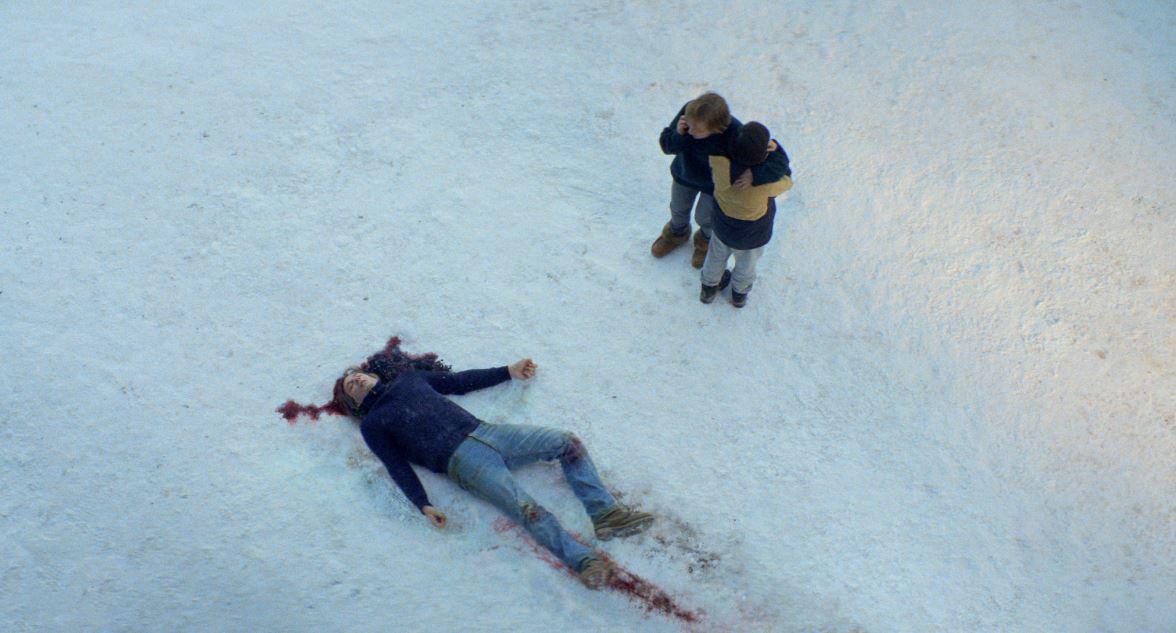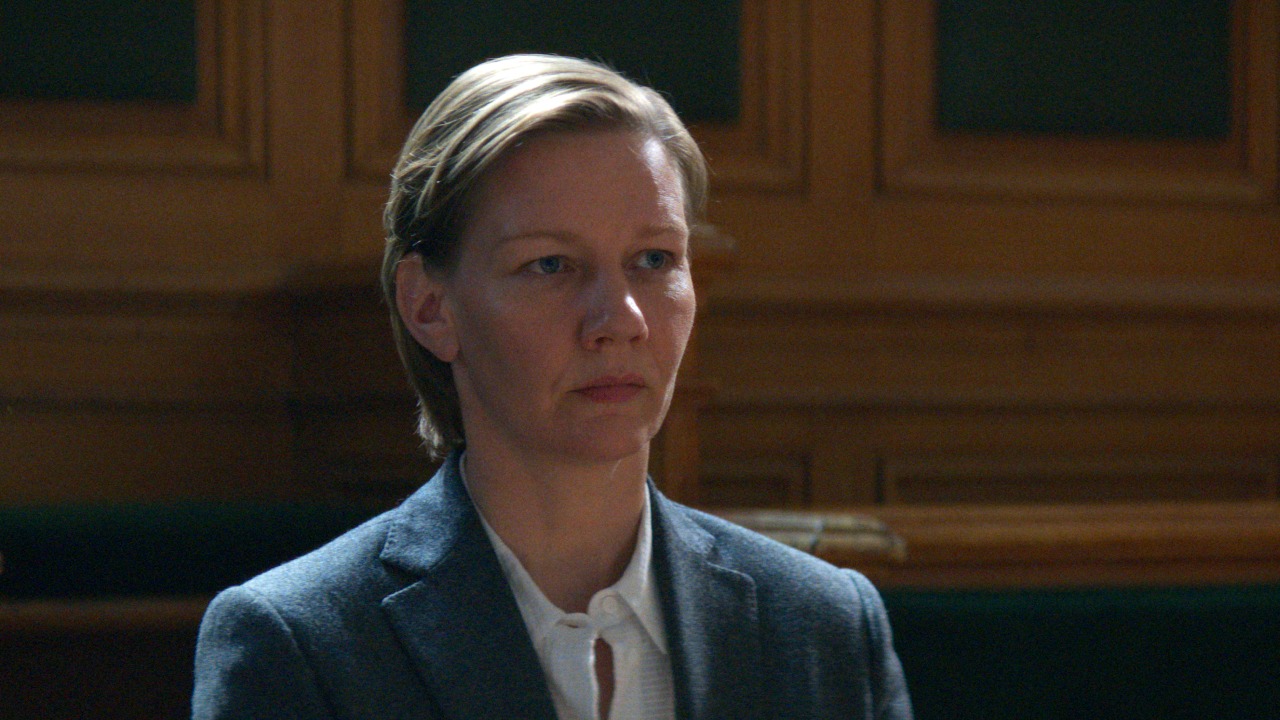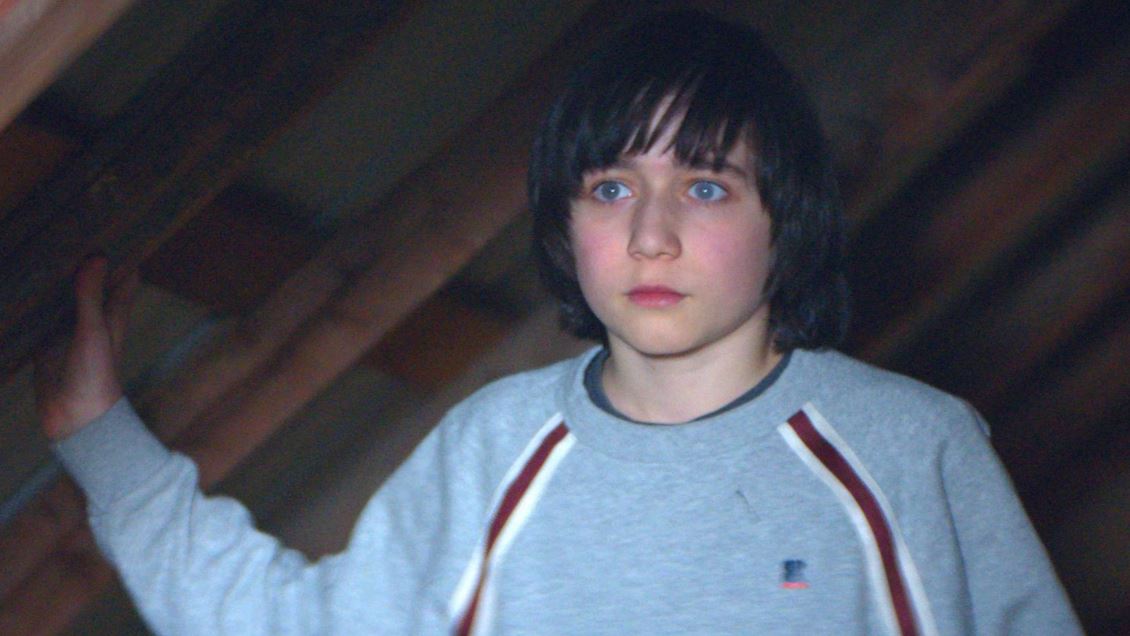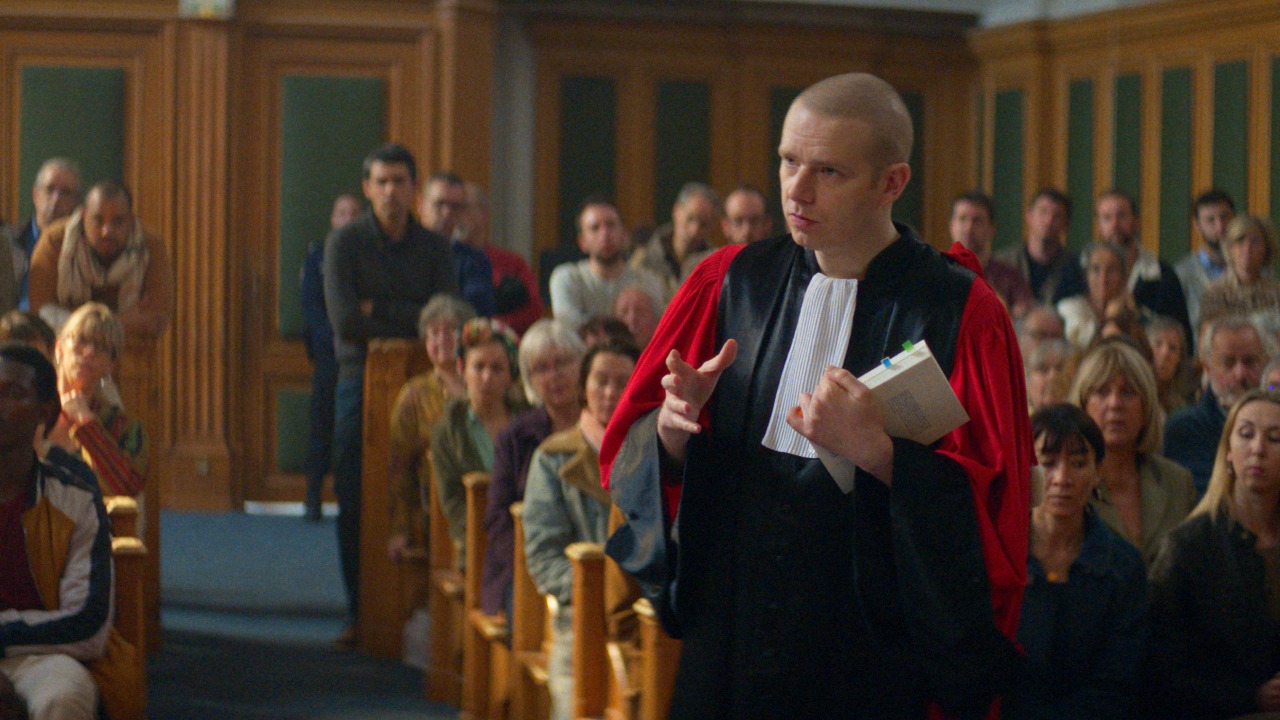Anatomy of a Fall (Anatomie d’une chute) – Film Review
Reviewed by Damien Straker on the 1st of January 2024
Madman presents a film by Justine Triet
Written by Justine Triet and Arthur Harari
Produced by Marie-Ange Luciani and David Thion
Starring Sandra Hüller, Swann Arlaud, Milo Machado Graner, Antoine Reinartz, Samuel Theis, Jehnny Beth, Saadia Bentaieb, Camille Rutherford, Anne Rotger, and Sophie Fillières
Cinematography Simon Beaufils
Edited by Laurent Sénéchal
Rating: MA15+
Running Time: 150 minutes
Release Date: the 25th of January 2024
Great scripting and intense, humane performances create an absorbing courtroom drama in Anatomy of a Fall. The critical acclaim the French film has received is an enormous coup for its director, Justine Triet. The forty-five-year-old filmmaker is an outspoken, fiercely political voice. She has openly criticised the French government on all types of social issues. Anatomy reflects her fearlessness against institutions and the need for individuals to decide what is true. While densely packed and brimming with intricate character details, the film resonates because it does not provide easy answers. Its ambiguity is integral to building thematic depth and allows the audience to determine their own conclusions around its tragedy. The debate and resonance Anatomy will inspire makes it one of the more interesting films in recent times.
Anatomy hinges on a meticulously realised dramatic premise that forms the story’s backbone. A woman named Sandra (German actress Sandra Hüller) and her family are living together in a chalet in the snow-covered French Alps. Sandra is interviewed by a young female journalist about her novel. As they are talking about Sandra’s written work, some music from the chalet’s attic grows louder and louder. The song is a very unsettling instrumental cover of 50 Cent’s P.I.M.P. by German group Bacao Rhythm & Steel Band. The music is played by Sandra’s husband, Maître Vincent Renzi (Frenchman Swann Arlaud). Meanwhile their son, Daniel (Milo Machado Graner, outstanding), who is blind, is taking his guide dog Snoop out in the snow. When he returns home, he is horrified to find Maître lying dead outside on the ground. The question is whether he committed suicide or whether the tension between Sandra and Maître prompted her to push him from the attic window. The film traces this question through a highly intense court case where the staggering complexities of the couple’s relationship are unveiled.
Justine Triet and Arthur Harari’s screenplay masterfully shifts the audience’s perceptions and sympathies. A straightforward tragedy soon becomes a shocking rabbit hole of twisted psychology within the courtroom setting. Triet uses the trial as a framing device to probe the drama and backstory that has driven Sandra and her husband apart. Their personal conflict partly relates to jealousy. There is the perception that Sandra plagiarised some written work Maître was unable to complete. Was it really copying if it was left unfinished in the first place? This is the type of dramatic question that Anatomy raises and leaves open. The film also probes other fascinating personal avenues, including Maître’s transition from teaching and into the difficulty of being an accomplished author like Sandra. This put enormous psychological strain on the couple when they could have had a comfortable life in another country. There is also another thread that suggests that Sandra was disloyal in their relationship. How many times she was unfaithful is unclear even after a surprise witness is questioned. The depth of character and the volatile nature of the central relationship leaves a strong, lasting impression.
What these shifting perceptions amount to is a statement about truth itself. The film’s even-handed form is built by creating perceptions of tragedy. It then reveals new details that make us rethink our conclusions. For one, we begin questioning Sandra’s integrity. As shown through a few flashbacks and a highly disturbing audio recording of the couple fighting, their marriage was highly fractured and volatile. The viewers and most crucially Daniel must then determine a conclusion. In discussing the truth, he realises if you do not know you must eventually ‘invent’ the truth. Not lying or fabricating an answer but deciding what you believe to be true. His conclusion will not be revealed here. However, even after the film’s resolution, we continue reading his face and wonder if he even believes what he has said. By altering our perceptions with new character details, the film underlines truth’s fragility and the action of introspection itself.
One cannot praise Anatomy without mentioning the excellent central performances. In the lead role, Sandra Hüller effortlessly shifts from her intense minimalist work in the courtroom to scenes of sizable emotion and power when the film stages tough domestic rows between Sandra and Maître. The minimalist acting style is critical to dissolving any transparency about her character. The brilliant performance of young actor Milo Machado Graner should not be overlooked. The young man’s emotion is devastating, particularly as he come to terms with his father’s death and the possibility of losing his last remaining parent. The indecision he faces in the film’s closing stages becomes very moving to watch. Antoine Reinartz who plays the prosecutor is also appropriately forceful and energetic in his courtroom scenes. Evidently, the actors relish having different tempos to draw from in the strong screenplay.
Anatomy is a compelling family tragedy and a broader, thought-provoking thesis about inventing truths. It is the film’s view that it takes personal reflection to determine what is factual and what we truly believe and disbelieve. Adding to the film’s memorable form is its extensively detailed central relationship that continues to shift our sympathy for Sandra as we learn more about her past. The film’s even-handedness reminded me of how Marriage Story (2019) cleverly revealed the flaws of both parents in the middle of an intense custody battle. The story’s ambiguity and the strong performances means Anatomy is a worthy companion to Noah Baumbach’s feature while possessing its own bleak edges and complexities. It leaves us with one final question: how strong is your faith in your own conclusions?
Summary: Anatomy is a compelling family tragedy and a broader, thought-provoking thesis about inventing truths.











